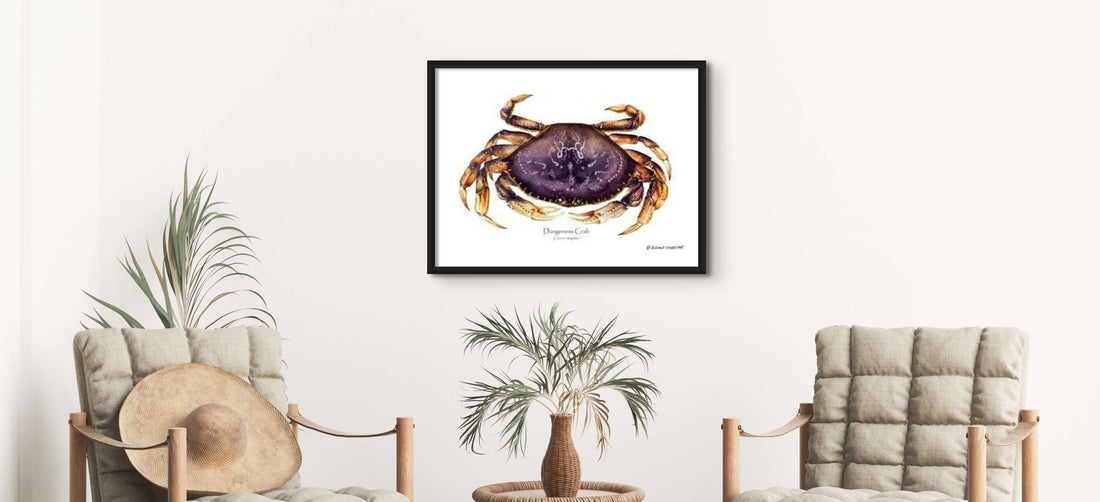
Dungeness Crab
Share

The Dungeness Crab takes its name from a river and point in the Olympic Peninsula of Washington state, which in turn was named for the Dungeness Headland in England, overlooking the Straight of Dover. Males only (for size and to preserve breeding females) are harvested from Alaska to California and and sold processed to a growing market.
Available almost year-round and the most popular crab on the West Coast. Peak production in December and January on the West Coast; supplies also ample in June and July from southeast Alaska and British Columbia fisheries. It weighs 2-4+ pounds, and has a relatively high meat yield at 25%. Off the coasts of California, Oregon, and Washington, only male crabs over the minimum carapace size of 6¼” are allowed. Its attractive size and sweet meat has made it increasingly popular in recent years.
Dungeness crabs are available fresh or frozen, live, whole-cooked, sectioned, or as picked meat. A large portion of Dungeness labeled as fresh crabmeat is actually picked from meat that was frozen in December and January. If you want truly fresh meat, plan to pay more since prices are higher after January. If you’re buying frozen sections, be careful of crab processed in early December — in some years, crabs from the ocean fishery have not filled out completely after molting and their meat yield tends to be low. Look for “heavy” crabs. Dungeness crab has a flavor similar to American lobster, with meat that is sweet, tender and flaky.
